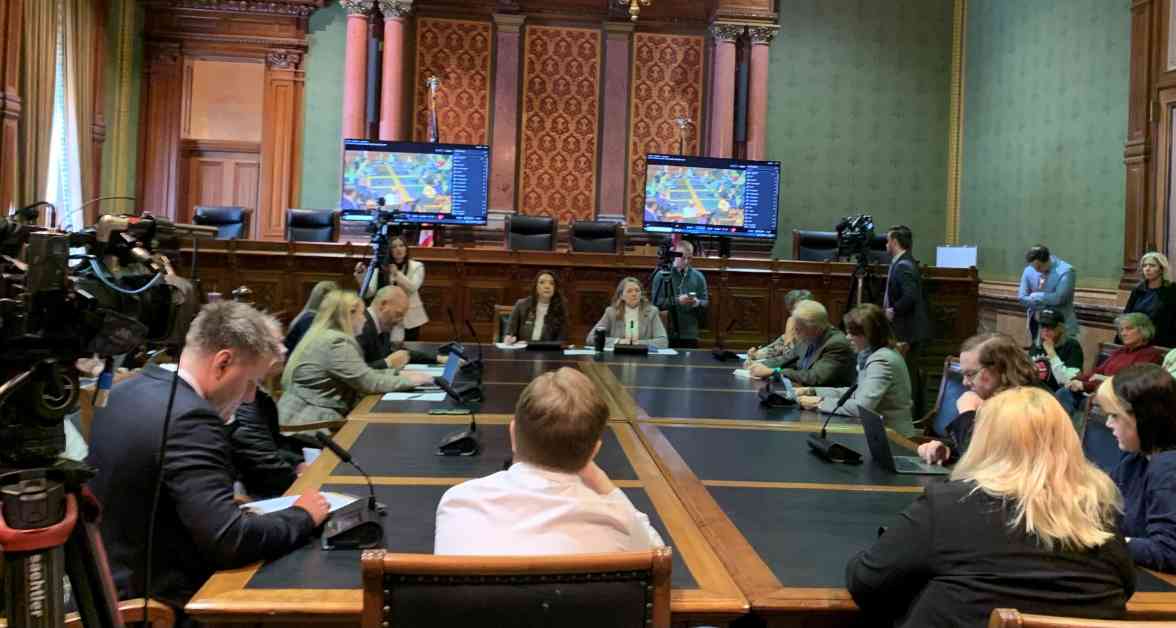In a recent development in Iowa, a subcommittee in the Iowa House has taken a significant step by approving a bill that aims to repeal the exemption of the state’s obscenity law for public libraries and educational institutions. This decision has sparked a heated debate among various stakeholders, each presenting their unique perspective on the matter.
During a hearing at the Capitol, tensions ran high as supporters and critics of the bill clashed over its implications. One particularly dramatic moment occurred when a supporter of the repeal threw books on the table while a critic of the bill testified. The clash of opinions highlighted the passionate beliefs held by both sides of the argument.
Keenan Crow, a representative of the LGBTQ advocacy group One Iowa, voiced concerns that the bill could potentially open the floodgates for frivolous lawsuits. Crow argued that the existing safeguards in place are robust enough to prevent any obscene materials from entering public libraries. By repealing the exemption, there is a fear that this could lead to unnecessary legal challenges that would ultimately be unsuccessful.
On the other side of the debate, Evelyn Nikkel of PELLA PAC, a group dedicated to protecting children from what they deem as “propaganda” and obscene materials, argued that the exemption serves as a loophole for public libraries. Nikkel expressed strong sentiments against allowing what they perceive as harmful content to be easily accessible to children. The belief is that by maintaining the exemption, public libraries are safeguarded from potentially harmful materials.
Chris Campbell of Ames raised concerns about taxpayer dollars being used to fund materials that could be deemed obscene. Campbell questioned why individuals who wish to access such content cannot simply purchase it themselves, rather than relying on public funds for its procurement. This argument underscores the debate surrounding the use of public resources to cater to diverse preferences.
Reverend Brigit Stevens of the United Church of Christ offered a different perspective, urging lawmakers to embrace knowledge and ensure that children have access to accurate and holistic information. Reverend Stevens emphasized the importance of education and the role of libraries in facilitating learning opportunities for young people.
The contentious nature of the debate in Iowa is further exacerbated by a federal lawsuit filed by book publishers challenging a 2023 Iowa law that seeks to ban books with sexual content from school libraries. This legal battle adds another layer of complexity to the ongoing discussions surrounding censorship and access to information in educational settings.
As Iowa grapples with the implications of repealing the exemption of the obscenity law for public libraries and educational institutions, it is clear that the debate is far from over. The clash of opinions, diverse perspectives, and legal challenges underscore the importance of striking a delicate balance between freedom of expression and ensuring the protection of vulnerable populations. The decision ultimately rests on lawmakers to navigate these complex issues and determine the best course of action for the state’s libraries and educational institutions.









